WMG News
University of Warwick technology helps solve over 300 murder cases
Over 300 murder cases have been solved over the last decade using cutting edge 3D imaging technology from WMG at the University of Warwick.
The technology, which can produce images with resolutions 1000 times more detailed than a hospital CT scan, has been used in murder cases by 30 police forces across the UK to view injuries in incredibly high detail.
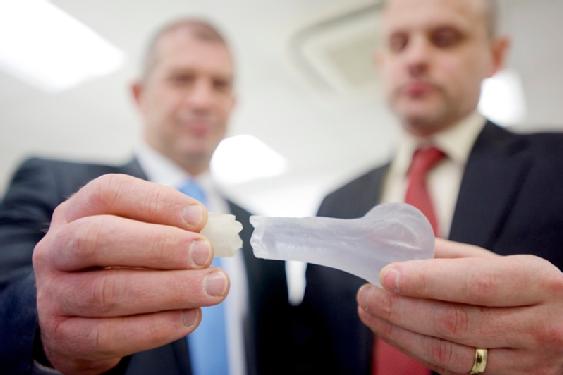 This has helped to convict the guilty, as well as prove innocence. The technology is so advanced that it can show the difference between a wound inflicted with force, versus the typical profile of one delivered by natural causes. Cases have included strangulation, stabbing, blunt force trauma and bone fractures.
This has helped to convict the guilty, as well as prove innocence. The technology is so advanced that it can show the difference between a wound inflicted with force, versus the typical profile of one delivered by natural causes. Cases have included strangulation, stabbing, blunt force trauma and bone fractures.
The technology was first used in 2014 when West Midlands Police approached WMG’s Professor Mark Williams. They asked him to help with their investigation into the grisly Birmingham canal murder, where a body was discovered in a suitcase in a Birmingham canal.
Professor Williams comments: “We were able to help the Police by examining a charred piece of evidence thought to contain human bone.
“We discovered that it was a perfect jigsaw fit to another piece of bone in the suitcase, and, using the very high-resolution scanning technology, we were able to show the tool marks on both pieces in micro scale (one 50th of a millimetre).
“These matched the characteristics expected for the type of saw the offender had disposed of, alongside the victim.”
This microscopic level of detail led to the conviction of murderer Lorenzo Simon, who was jailed for 19 years.
This marked the start of a productive research partnership for WMG with West Midlands Police, who have now used the technology in dozens of murder cases. Now, 30 police forces in the country have used the cutting-edge technology.
The technology has also been used in other high-profile cases, including to rule out foul play. In one case where a 64-year-old had fallen, 3D model printing of the skull of the deceased showed exact matches with the geometry of the doorhandle, suggesting a fall. This resulted in the cause of death being ruled as accidental.
The high-resolution scans were also used to help convict Tipton murderers Nathan Maynard-Ellis and David Leesley, who dismembered their victim. The scans helped prove the deliberate nature of their behaviour after their crime, including the direction and variation of their cuts. Both were convicted and will serve a life sentence.
Read more about WMG’s Metrology and 3D Imaging research here: Metrology and 3D Imaging (warwick.ac.uk)
New award wins shine light on the importance of industry-university partnerships
WMG at the University of Warwick has secured funding, alongside other departments at the University, for eight new Innovate UK funded Accelerated Knowledge Transfer (AKT) projects, designed to rapidly inject innovation capacity within UK industry.
With over 500 applications and just a third of projects awarded a slice of the £5 million, WMG was successful because of its strong industry ties and robust business relationships.
Like regular Knowledge Transfer Partnerships, which have been funded by successive governments for almost 50 years, AKT projects provide organisations with a specialist academic team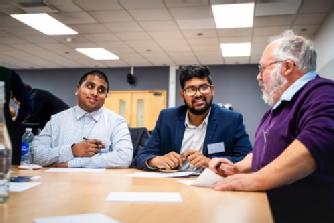 including a postgraduate student. The WMG team will:
including a postgraduate student. The WMG team will:
- Identify innovation blockers
- Evaluate an innovation concept
- Find solutions to immediate as well as longer term challenges
- Accelerate new thinking and processes
- Develop new business models and expand capacity
One WMG industry partner set to benefit is Jaltek Systems Ltd. The team at Jaltek will be using the funding to continue with the integration of robotics technology into processes.
Andy Dowling, Head of WMG’s SME Business Development team said: "These awards are testament to the University's continued drive and success in establishing collaborative relationships with industry through the Knowledge Transfer Partnership scheme. As only 35% of the AKT applications were awarded Innovate UK funding, we are proud of our achievements and are looking forward to working on this set of exciting projects."
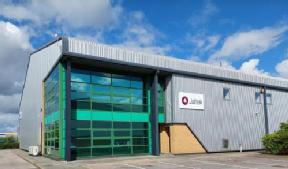 Steve Blythe of Jaltek Systems Ltd said: “We are continually looking to improve productivity through training, improved processes, and automation. We saw good practice using cobots (collaborative robots) in other businesses and reached out to WMG to support our plans. The funding for the AKT will help us further our activity in this area.”
Steve Blythe of Jaltek Systems Ltd said: “We are continually looking to improve productivity through training, improved processes, and automation. We saw good practice using cobots (collaborative robots) in other businesses and reached out to WMG to support our plans. The funding for the AKT will help us further our activity in this area.”
The 16-week long projects will start from April 2024 and WMG will be recruiting talented graduates to join the team. For more information contact: wmgsme@warwick.ac.uk.
To find out more about WMG’s SME Programmes visit: https://warwick.ac.uk/fac/sci/wmg/for-industry/sme-support/
New national initiative to educate the public on automated vehicles (AVs)
Today (Wednesday 21st February 2024), WMG at The University of Warwick, has launched the Partners for Automated Vehicle Education United Kingdom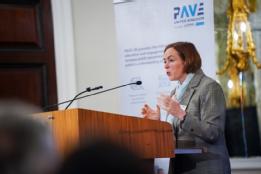 (PAVE UK) with the Department for Business and Trade, the Department for Transport, the Centre for Connected and Autonomous Vehicles (CCAV), and Transport for West Midlands, as its founding partners.
(PAVE UK) with the Department for Business and Trade, the Department for Transport, the Centre for Connected and Autonomous Vehicles (CCAV), and Transport for West Midlands, as its founding partners.
The PAVE UK initiative aims to build public confidence in self-driving technology through a programme of education and engagement, supporting the UK Government’s ambition to safely deploy self-driving vehicles on the road and its aim to make the UK the leader in artificial intelligence (AI).
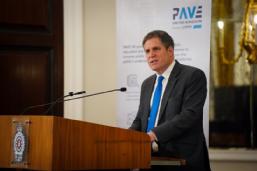 PAVE UK is the country’s first non-governmental organisation that advocates for and delivers public education and engagement programmes on automated vehicles. It launched today at the Royal Automobile Club in London, with Anthony Browne MP (Technology and Decarbonisation Minister), and Professor Sarah Sharples (Chief Scientific Adviser at the Department for Transport), as the keynote speakers. Over 100 technology developers, safety campaign groups, regulators, innovators, and industry leaders discussed how to ensure the public is engaged in the self-driving technology journey and how to accurately communicate AV safety messages with different stakeholders in society.
PAVE UK is the country’s first non-governmental organisation that advocates for and delivers public education and engagement programmes on automated vehicles. It launched today at the Royal Automobile Club in London, with Anthony Browne MP (Technology and Decarbonisation Minister), and Professor Sarah Sharples (Chief Scientific Adviser at the Department for Transport), as the keynote speakers. Over 100 technology developers, safety campaign groups, regulators, innovators, and industry leaders discussed how to ensure the public is engaged in the self-driving technology journey and how to accurately communicate AV safety messages with different stakeholders in society.
Professor Siddartha Khastgir, Head of Verification & Validation at WMG, University of Warwick said: "At WMG, we strive to enhance the safety of self-driving technology and ensure it is safe to operate on the roads. In taking a people first approach, the public should be paramount in the safety conversation and part of the journey during the development and deployment of self-driving vehicles on UK roads.
“PAVE UK will translate technical information into clear, comprehensive and accurate messaging to help communicate safety to the public in an inclusive and accessible manner. Future technology users and other road users will be equipped with the knowledge of benefits and limits of this new transport technology. PAVE UK will also bring together the self-driving ecosystem to tackle the technological challenges, speak honestly and accurately about system capabilities and limitations, and encourage innovators to put the public at the heart of this.”
PAVE UK will work closely with the entire UK Connected and Automated Mobility (CAM) ecosystem, to carry out education and engagement programmes, such as research-based educational materials packs, school outreach activities, community outreach, an online video library, webinars, and an online educational app. The programme will be delivered by WMG at the University of Warwick.
Nusrat Ghani MP, Minister for Industry and Economic Security, said: “The UK automotive sector is at the cutting edge of exploiting new innovative technologies. These have the potential to create jobs, grow the economy and accelerate how we reach net-zero.
“This government has shown time and time again that we're committed to creating the right conditions to boost UK advanced manufacturing, and the PAVE UK initiative will help cement the UK as a world leader in self-driving technology."
Technology and Decarbonisation Minister Anthony Browne said: “Self-driving vehicles have the potential to transform our transport sector, and PAVE UK will be a big part of this by raising awareness and embedding confidence in people throughout the country. In the meantime, we’re making sure that these vehicles are safe to use on our roads. Our Automated Vehicles Bill sets a rigorous standard for safety, whilst making sure that this country is where businesses can develop and deploy their cutting-edge technology.”
Organisations and schools wishing to participate in the programmes can contact PAVEUK@warwick.ac.uk
Ends
Note to editors
Additional quotes
Tara Andringa, Executive Director, PAVE said: "When PAVE was founded in 2019, it was a bet on the power of knowledge: we believed that if the public understands the facts of autonomous vehicles, we will see greater public trust in this incredibly promising technology. Our campaign both seeks to demystify automated vehicles– to explain how the technology works – and to help the public understand how these technologies could help to improve the safety, efficiency, and sustainability of our transportation system.
“While countries and regions have adopted different regulatory approaches to automated vehicles, the challenge of AV education is global in nature. Given the tremendous leadership from the UK both in its approach to AV policy and to civic engagement on the technology, we are incredibly excited for the influential role PAVE UK will play in leading public education. The PAVE ecosystem is thrilled for the launch of PAVE UK, and we will work together to build an engagement campaign that will create a template for AV education worldwide."
Automated Vehicles Bill: https://bills.parliament.uk/bills/3506
About WMG, University of Warwick
WMG is a world leading research and education group, transforming organisations and driving innovation through a unique combination of collaborative research and development, and pioneering education programmes.
As an international role model for successful partnerships between academia and the private and public sectors, WMG develops advancements nationally and globally, in applied science, technology and engineering, to deliver real impact to economic growth, society and the environment.
WMG’s education programmes focus on lifelong learning of the brightest talent, from the WMG Academies for Young Engineers, degree apprenticeships, undergraduate and postgraduate, through to professional programmes.
An academic department of the University of Warwick, and a centre for the HVM Catapult, WMG was founded by the late Professor Lord Kumar Bhattacharyya in 1980 to help reinvigorate UK manufacturing and improve competitiveness through innovation and skills development.
About PAVE UK
PAVE UK aims to bring the conversation about automated vehicles (AVs) to the public so that future users and technology developers can play a role in shaping our future.
By arranging education and engagement programmes around AVs, our goal is to increase the public’s awareness of the capabilities and limitations of the technology and build up societal acceptance and trust in this new transport innovation. We also aim to develop a correct user attitude to foster the safe deployment of AVs.
We strongly believe that by fully and transparently equipping the public with CAM technology knowledge, we could then achieve the potential benefits of the technology.
Media contact:
Annie Slinn
Communications Officer (Sciences)
Gabbie Lau
WMG Marketing and Communications Officer (Verification and Validation Research Group)
Students inspired at Engineering Industry Day
On Wednesday 7th February, the Outreach Team at WMG, University of Warwick hosted an Engineering Industry Day.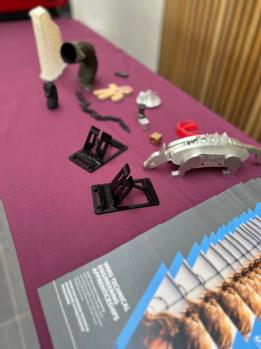
The Team welcomed over 100, year 9 and 10, pupils who were identified by their teachers as students, from groups under-represented in engineering and STEM careers, with an interest and a potential to do well in those subjects.
The students came from schools across the West Midlands region including the WMG Academies for Young Engineers in Coventry and Solihull; Barr’s Hill School and Community College; Bishop Perowne C of E College, Foxford Community School, Meadow Park School and Nicholas Chamberlain School.
The group was welcomed by Professor Margaret Low, WMG’s Director of Outreach and Widening Participation; Dr Phil Jemmett, WMG’s Widening Participation Co-ordinator; Caroline Cannon, WMG Outreach Project Officer, and Rebecca Sanderson Senior Programme Manager for Schools from the Royal Academy of Engineering. They were introduced to the various industry partners before heading over to the Degree Apprenticeship Centre (DAC).
The event was supported by the High Value Manufacturing Catapult through the Inspiring Young Engineers project which aims to foster a positive culture of engineering in young people and create the future engineering workforce.
At DAC the students had the opportunity to chat with representatives from industry partners including; Aston Martin; Balfour Beatty; Bentley; Bosch UK; Capgemini, Collins Aerospace; Honda; National Grid ESO; Polestar; Ramboll; 3P Innovations; SMP Alliance; Severn Trent and Lisi Aerospace.
The industry partners gave advice and guidance about the skills and knowledge required to become an engineer, and a snapshot of what an engineer is and might do in a variety of roles.
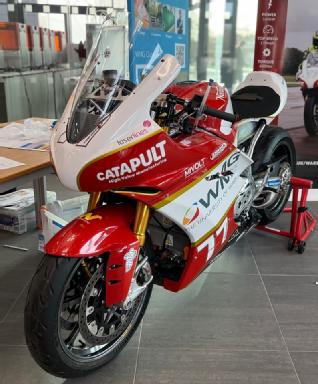 Along with their teachers the students heard more about the research being carried out at WMG. They also had the chance to see the student projects including Warwick Racing, Warwick Moto, Warwick Submarine, Warwick Robotics and CyberWomen@Warwick, and chat to WMG apprentices.
Along with their teachers the students heard more about the research being carried out at WMG. They also had the chance to see the student projects including Warwick Racing, Warwick Moto, Warwick Submarine, Warwick Robotics and CyberWomen@Warwick, and chat to WMG apprentices.
They also received information from the School of Engineering about how they can study to become an engineer and learnt more about the Degree Apprenticeship route into engineering too.
WMG’s Outreach Project Officer, Caroline Cannon, who organised the event, explained: "We know that role models are an important part of outreach and STEM enrichment sessions, but it is daunting for students to approach and talk to industry professionals. This event was designed to show the vast array of engineering opportunities from different sectors of the engineering industry and give them a valuable interaction with positive role models.”
Paula Carmichael from WMG Academy for Young Engineers said: “I just wanted to say a massive thank you for today, it was a really good event that had just the right number of activities versus talks. I know how much hard work goes into this, from lost property to keeping the talks to the right timings, there was a great mix of companies and stands over the breaktime. Much better than a normal career fair, certainly the way forward.”
Dr Phil Jemmett from the WMG Outreach team said: “When we talk about engineering and how it could fight global challenges or make life easier for people, it's easy to forget the engineers who work on these massive projects. Events like our Industry Day aim to link young people up with those very engineers who are working on some of the biggest challenges our society faces. We want to inspire young people to imagine themselves as engineers in the future and picture what they would design to help our planet."
Find out more about WMG’s Outreach programme here: https://warwick.ac.uk/wmgoutreach
Labour leader sees University of Warwick’s industrial impact first hand
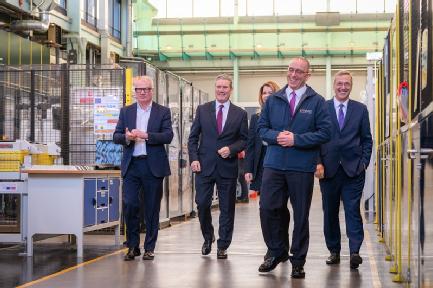 Keir Starmer today visited WMG at the University of Warwick to meet researchers, technicians, and students at one of the world’s leading centres for industrial innovation and skills.
Keir Starmer today visited WMG at the University of Warwick to meet researchers, technicians, and students at one of the world’s leading centres for industrial innovation and skills.
He was joined by Labour’s mayors and mayoral candidates, including Richard Parker (West Midlands), Andy Burnham (Greater Manchester) and Claire Ward (East Midlands).
The Labour leader and the mayors visited WMG’s International Manufacturing Centre (IMC), where Warwick experts work with industrial partners to drive forward innovation in fields such as sustainable transport, connected and autonomous vehicles, agritech and advanced manufacturing.
WMG is an academic department within the University and is widely regarded as an international role model for successful collaboration between academia and the public and private sectors, driving innovation in science, technology, and engineering.
Keir met with the University’s Vice-Chancellor, Professor Stuart Croft, and the Dean of WMG, Professor Robin Clark, and had an opportunity to see innovative projects such as Warwick Racing, Warwick Moto, and the Driving the Electric Revolution programme for novel electric motors for use in electric transport.
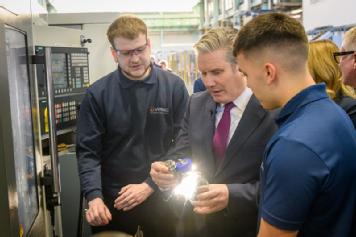 Speaking after the visit, Keir said: "I was delighted to visit WMG at the University of Warwick today to hear about their pioneering work to drive growth through its support for business and industry. We need the UK’s universities to be central to our future economic growth, through their contributions to innovation, sustainability, and the talents of our people.
Speaking after the visit, Keir said: "I was delighted to visit WMG at the University of Warwick today to hear about their pioneering work to drive growth through its support for business and industry. We need the UK’s universities to be central to our future economic growth, through their contributions to innovation, sustainability, and the talents of our people.
"Meeting some of the University’s impressive researchers, technicians and students, who are working on the technology of the future, their driving purpose is what an incoming Labour government will bring, if we are privileged enough to serve. We’ll work hand in hand with universities, sixth forms and further education colleges to deliver on each of our five missions to give Britain its future back.”
Vice Chancellor, Professor Croft said: “We were pleased to host the Labour leader and the mayors and mayoral candidates to show them some of the cutting-edge research and product development which takes place here on our campus.
“The University of Warwick is unique with respect to the way it has worked hand-in-glove with industry and businesses for decades, developing innovative products and services with them and finding real-world solutions to complex problems. Collaboration, openness, and creativity is at the heart of our approach, which has led to a host of breakthrough technologies and innovations.”
Dean of WMG, Professor Robin Clark, added: “At WMG, we focus on working with industry to create real innovation to drive growth in our economy, and give people the practical skills to make a difference to the world around them. It was a pleasure to introduce Keir to our researchers, technicians and students who are really helping make our country more sustainable, safer, and prosperous.”
The University of Warwick is ranked as one of the world’s best universities, with 92% of its research rated as world-leading or internationally excellent.
Professor Alok Choudhary: Impact of the Red Sea crisis on global supply chains
 Expert comment from Professor of Supply Chain Management, Alok Choudhary.
Expert comment from Professor of Supply Chain Management, Alok Choudhary.
“The ongoing Red Sea crisis might have far-reaching consequences on the global supply chain, trade, and economic dynamics. Serving as the shortest sea route connecting Asia and Europe, the Suez Canal transports 17,000 ships annually, representing 12% of the world's total trade volume and $1 trillion worth of goods.
“The implications of this disruption on trade are significant. Rerouting ships an additional 3500 nautical miles is expected to result in significant delays, causing logistical challenges for major companies. The increased shipping and logistics costs incurred due to longer travel times are likely to be passed on to consumers, leading to a potential spike in prices for a wide array of goods, from everyday consumer items, oil and gas to crucial components for industries such as automotive and manufacturing.
“The ripple effect on production cycles is a cause for concern, as delays in delivering key components may lead to further disruptions. In particular, the automotive and consumer goods industries may face challenges in maintaining production schedules if crucial components do not reach their destinations on time.
“One of the most immediate impacts could be felt in the oil market, with potential consequences for global oil prices. The disruption in the timely transportation of both refined and crude oil through the canal may contribute to an increase in oil prices. This could have a cascading effect on economies, particularly in regions heavily reliant on oil imports, and may be reflected at fuel pumps worldwide.
“Here in the UK, the rise in oil prices could pose a challenge to economic stability and may halt falling inflation. Higher shipping and logistics costs, coupled with potential delays in the delivery of goods, might contribute to inflationary pressures. This could have broader implications for the UK economy, impacting consumer spending and overall economic growth.”
Read more about Supply Chain research at WMG here: https://warwick.ac.uk/fac/sci/wmg/research/research-areas/supply-chain
Warwick Agri-Tech ploughs the future of farming and forestry with robotics
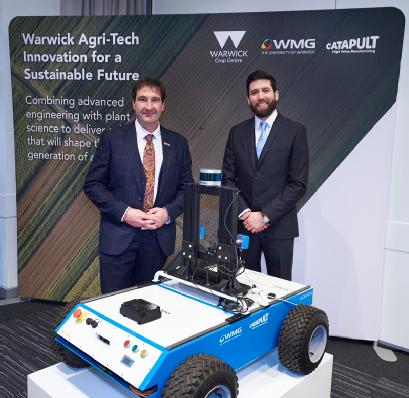 The University of Warwick announces Warwick Agri-Tech to help the future of farming with automation – addressing issues such as labour shortages, food insecurity and loss of biodiversity.
The University of Warwick announces Warwick Agri-Tech to help the future of farming with automation – addressing issues such as labour shortages, food insecurity and loss of biodiversity.
Warwick Agri-Tech, will also support the UK to meet climate targets while enabling the production of enough nutritious food for the growing population. It will combine two world class faculties at WMG at The University of Warwick and the School of Life Sciences (SLS), working with the High Value Manufacturing Catapult to spearhead automation in areas such as horticulture, crops and forestry.
Robots will be a key tool for farmers as food production comes under increasing pressure. There is a constant demand to grow enough high quality, nutritious food to feed an expanding human population, and to do so in a way that won’t harm the planet.
According to scientists, the UK will need to produce 50% more food by 2050, while reducing land consumption by 50%. This is further challenged by labour shortages, a broken food system and the fact we are overusing the Earth’s biocapacity (the capability of ecosystems to produce useful biological materials and to absorb waste).
The University of Warwick is in a unique position to tackle these issues and develop farming technology, with expertise in both automation and life science.
Warwick Agri-Tech was born out of an initial project which developed a crop monitoring robot (Crombot) to move autonomously up and down glasshouses and check fruit for ripeness. Officially launching today, with a visit from the Department for Environment, Food & Rural Affairs (DEFRA), Warwick Agri-Tech will continue its research on several key projects:
· An Autonomous Logistics Project – developing an autonomous vehicle to help horticultural companies to optimise their product handling logistics.
· A Smart Tree Production System – Warwick Agri-Tech is working with J&A Growers, who are the leading UK growers of quality bareroot trees and hedging, to autonomously sort and grade sapling trees. This will ensure resilience against labour shortages and is scalable in the face of the UK’s ambitious tree planting targets.
· Autonomous Precision Application – creating an autonomous, AI-based weed control robot, to reduce utilisation of herbicides by over 90% - improving soil health and biodiversity.
The University’s leading crop research centre at based at the Innovation Campus, Stratford-upon-Avon is a leading, 200-hectare agricultural research site. Scientists at the University will collaborate directly with industry partners and the Government to drive implementation of new technology in the farming sector.
Professor Gideon Henderson, Chief Scientific Adviser, said: “Seeing the innovation going on here is really inspiring – I firmly believe that Agri-Tech in the UK has a huge future and I look forward to seeing new ways of working being trialled here at Warwick become mainstream agricultural practices in the future.”
Professor David Greenwood, Director for Industrial Engagement, and CEO of the High Value Manufacturing Catapult at WMG, said: “The emerging needs of the agriculture sector have provided a perfect opportunity for The University of Warwick to bring together our expertise in manufacturing automation with our expertise in life sciences, so we can simultaneously develop robots suitable for use in greenhouses and fields, and ways of growing crops which take advantage of the opportunities of automation. As the UK struggles with availability of agricultural labour, and high food prices, this promises to unlock nutritious and affordable food for all.”
Professor Miriam Gifford, School of Life Sciences, University of Warwick, said: “Warwick Agri-Tech will benefit from the entrepreneurship of WMG and the history of excellence in agricultural innovation from the School of Life Sciences’ Warwick Crop Centre, plus the combined stakeholder groups to inform and enable outputs. The fresh food industries need automation urgently. Warwick Agri-Tech will grow rapidly into research and innovation space screaming for workable solutions and expecting substantial funding initiatives.”
More information about Warwick Agri-Tech here: https://www.youtube.com/watch?v=vXC3jzqrga0
Collaborative project wins prestigious industry award
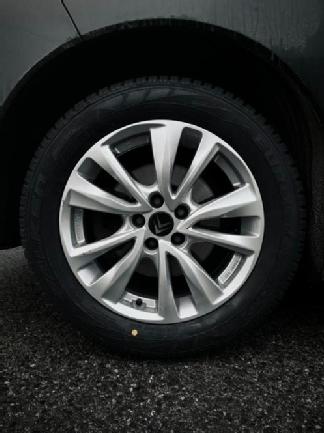 Researchers at WMG at the University of Warwick and the University of Victoria in Canada, have won the inaugural Synthos Rubber Circularity Award.
Researchers at WMG at the University of Warwick and the University of Victoria in Canada, have won the inaugural Synthos Rubber Circularity Award.
The international competition was launched to encourage cutting-edge ideas and solutions that will significantly improve the environmental performance of synthetic rubber-based tyre compounds, aligning with the sustainability objectives of the global automotive and tyre industries.
Synthos, a global leader in synthetic rubber, praised the two universities for their breakthrough technology research concept and global collaborative approach.
Professor of Nanocomposites at WMG, University of Warwick, Chaoying Wan explained: “Rubbers are ubiquitous materials in modern society and have played important roles across transportation; construction; oil and gas; biomedical devices; sports and electronics.
“As the key component to connect the vehicle to the road the performance of the tyre, including its rolling resistance, abrasion resistance and wet grip, directly determines the fuel efficiency, wear emission and safety.
“The emerging EVs and SUVs have raised increasing higher demands for performance that challenge the current technology. This new partnership, with Synthos Synthetic Rubber and the University of Victoria, will enable us to innovate rubber chemistry and develop functional rubber nanocomposites manufacturing technologies to address performance challenges. The new technology will also innovate traditional rubber systems to be actively recyclable.”
Matteo Marchisio, Vice President, Synthetic Rubber, stressed the importance of investing in research and development of sustainable rubber and tyre materials. “We are very proud of our diverse group of exceptional and talented scientists that make up the Synthos Rubber R&D team. Together with the University of Warwick and the University of Victoria, we see an exciting future in expanding our product development horizons. I firmly believe that by fostering innovation and collaborating with the brightest minds in scientific research, we move not only ourselves but also the entire value chain closer to our goal of carbon neutrality by 2050.”
Synthos Synthetic Rubber R&D Director Dr. Malte Wohlfahrt added, “We congratulate the University of Warwick and the University of Victoria for presenting an impressive research concept that we believe is the best fit for us. However, I also want to acknowledge the excellence of many other entries we received. The Synthos Rubber Circularity Award isn't just about crowning a winner; it's about advancing a culture of innovation. Therefore, we intend to collaborate with and invest in some of the other standout scientists and institutes we’ve had the honor to engage with. Overall, this award has sparked immense inspiration across our entire rubber business and given us much food for thought.”
The university collaborators will receive a three-year funding package to support a dedicated research team. They will also be provided with Synthos rubber materials and access to its state-of-the-art facilities. In addition, scientists from both institutions and Synthos will form a project team to work closely together and leverage the capabilities of all parties in a way that maximises the value of the collaboration to the tyre industry.
Find out more about Nanocomposites research at WMG here: Nanocomposites (warwick.ac.uk)
Millions awarded to University of Warwick to turbocharge UK’s battery production
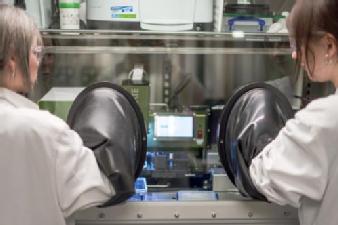 The University of Warwick has been awarded millions of pounds to boost British production of crucial materials for electric car batteries.
The University of Warwick has been awarded millions of pounds to boost British production of crucial materials for electric car batteries.
The £12 million in funding has been awarded by the Faraday Battery Challenge to the High Value Manufacturing Catapult at WMG at the University of Warwick, and CPI at NETPark (North East Technology Park), in County Durham.
It will be used to create the new Advanced Materials Battery Industrialisation Centre (AMBIC).
The Centre will bridge the gap between academic research and battery production and will focus on how batteries can be made to work more efficiently, as well as on equipment and skills development.
The Centre is needed to help the UK develop the electric vehicle batteries of the future, with reduced costs, more sustainable materials and improved performance.
Electric vehicle batteries make up around half the cost of a new electric vehicle, so reducing the cost of their production is crucial to lowering the cost of EVs to parity with combustion engine vehicles.
The funds are part of a wider investment strategy by the Faraday Battery Challenge and the High Value Manufacturing Catapult to ramp up Britain’s battery production and infrastructure to boost the UK’s domestic battery supply chain.
Professor David Greenwood, CEO of the WMG High Value Manufacturing Catapult Centre said: “Cathode and anode active materials make up more than 50% of the value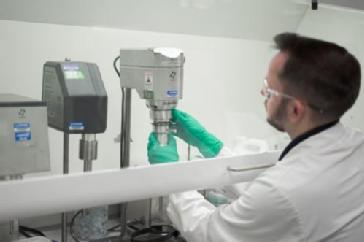 of an automotive battery cell.
of an automotive battery cell.
“For the UK to take its great academic research into production, and to capture the billions of pounds of resulting economic value in the UK, we need facilities which allow Britain to scale up and fully evaluate new materials. This investment, alongside the combined skillsets of CPI and WMG will provide that capability for the UK.”
The funds are specifically to help turbocharge the scale up of battery materials manufacturing within the UK. Only by producing batteries on a wider scale domestically can the EV industry make sure there is no bottleneck in supply and demand. By strengthening UK supply chains of battery materials, WMG is working with UKBIC and others to create a more resilient supply chain.
Thomas Bartlett, Challenge Deputy Director for the Faraday Battery Challenge, said: “AMBIC will bring together two emerging regions of battery innovation and manufacturing; the North-East and Midlands, under one facility to de-risk and accelerate battery materials scale up in the UK.
“Through the Faraday Battery Challenge’s £12m investment in the High Value Manufacturing Catapult we will establish a truly world-class facility to support the growth of a battery materials supply chain. With AMBIC and previous investments in cell, module and pack scale-up at UKBIC and R&D in the wider ecosystem, the UK will now be in a position to support businesses from “powder to pack” and from lab to commercial scales.”
Katherine Bennett, CEO of the High Value Manufacturing Catapult, said: “The next generation of battery technologies are critical to the green energy transition and a major opportunity for UK manufacturing. Realising that potential will require combining our collective expertise and this investment from the Faraday Battery Challenge is a brilliant example of that in action.
“In CPI and WMG, the Advanced Materials Battery Industrialisation Centre has two centres that are at the very forefront of chemical processing and battery cell development; together they can turbo charge battery materials scale-up.”
Frank Millar, Chief Executive Officer at CPI, said: “The Advanced Materials Batteries Industrialisation Centre will enhance the UK’s existing competitive advantages in batteries technology, and it stands to become a catalyst for the UK to address some of the biggest challenges we face as a nation. By giving innovators the opportunity to harness our expertise we can tackle issues such as climate change, while growing a sector that will be vital to the future of the economy.”
WMG hosts Student Project Showcase
The Outreach Team at WMG, University of Warwick was pleased to welcome pupils from local schools to a special Student Project Showcase event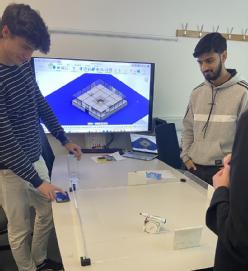 supported by the High Value Manufacturing Catapult.
supported by the High Value Manufacturing Catapult.
Over 100, year 10, students from the WMG Academies for Young Engineers in Coventry and Solihull were invited to the event held at the University of Warwick campus.
The year 10 pupils had a chance to see for themselves the remarkable engineering projects from Warwick Racing; Warwick Rail; Warwick Submarine; Warwick Moto and Warwick Robotics.
CyberWomen@Warwick students also took part. The group of female students strive to empower future talent, with a specific focus on women, in cyber security.
Caroline Cannon, Outreach Project Officer at WMG, who organised the Showcase, explained: “ With these types of events, and across all of our outreach activities, we work with our partners to inspire and empower the next generation of scientists and engineers to pursue careers in STEM in an attempt to close the engineering skills gap.”
Claire Morris, Associate Principal at the WMG Academy for Young Engineers in Solihull, said: “ I have heard nothing but great feedback from Year 10 students, and the staff involved. Thank you Caroline, to you and your team for organising this event, and thanks to the WMG team for making it happen.”
Caroline Cannon added: “ The Showcase was also a good experience for our new cohort of University of Warwick engineering students to build confidence talking about the various projects.”
A University of Warwick student and Warwick Rail team member said: “What I liked most about the event was seeing the students (from the Academies) getting stuck into the activities and thinking critically about the projects.”
WMG support a variety of undergraduate student projects with connections to industry partners. The selection of student-led projects shows the breadth and depth of skills that the students apply both individually and collaboratively as part of a team.
Each project is supported and assisted by PhD students, academics, technicians, and industry sponsors. Dave Cooper, Engineering Technician at WMG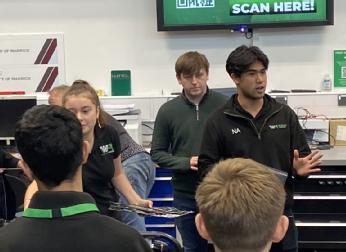 supporting Student Projects said: “Students that work on these projects have had the most amazing opportunities from placements, scholarships and jobs with companies such as McLaren, Mercedes, Red Bull, Norton and Triumph.”
supporting Student Projects said: “Students that work on these projects have had the most amazing opportunities from placements, scholarships and jobs with companies such as McLaren, Mercedes, Red Bull, Norton and Triumph.”
Students gain valuable practical and project management skills with each team member being assigned a role and area of responsibility, from engineering and technical lead to marketing and sales support. The projects develop students; teach time management and risk management; group working; and give practical hands-on experience.
WMG and the High Value Manufacturing Catapult provide some seed funding, but the individual teams are responsible for securing sponsors and raising funds. Feedback from employers suggests that these projects produce some of the most employable graduates in the market.
Find out more about the student projects here: https://warwick.ac.uk/fac/sci/wmg/about/outreach/studentproject/
